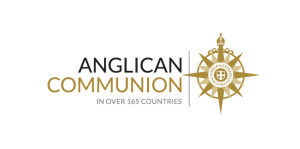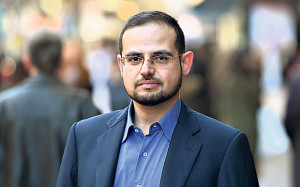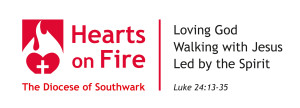 I last posted on the events at Trinity Brentwood on the 29th January. A further seven weeks have now passed and one would have hoped that there were significant developments to report in terms of new progress accomplished. The lack of progress continues in most areas but this is partly compensated for by one dramatic new event in the ongoing story.
I last posted on the events at Trinity Brentwood on the 29th January. A further seven weeks have now passed and one would have hoped that there were significant developments to report in terms of new progress accomplished. The lack of progress continues in most areas but this is partly compensated for by one dramatic new event in the ongoing story.
Before we look at and comment on the one new game-changer in the continuing saga, we need to review where we were seven weeks ago. In summary, the church had announced the formation of a Commission in December to examine the way the church had created a ‘toxic culture’ in the past. The Evangelical Alliance, which had been drawn into this process of addressing ‘past wrongs’, had agreed to help by recommending an external chairman for this group. The weeks sailed by and nothing seemed to happen. I made the irreverent suggestion on the postings of the other blog that the task of being chairman of a group to examine Trinity Brentwood would be a challenge that few would want to take on. One can suspect that, having made the promise to suggest a chairman, the Evangelical Alliance was finding it indeed tough to fill the post. That was where we left the situation in the last days of January. February went from beginning to end with no formal announcements about the Commission or its chairman. At last, on the 1st March, the Trustees announced the name of a chairman, recommended by the EA, and the names of four other members of the Commission. Four out of the five members of the Commission had a claim to be independent of Trinity Church. The Chairman was to be an experienced Baptist minister with good national connections, one Rob James, who lives in west Wales. A web-search suggested that he was a worthy man who would probably have done a thorough job, even though his home was very far away. No one on Nigel’s blog had any queries about his potential impartiality, though questions have been raised as to the independence of the other members of the Commission. My own feeling was that if the chairman was sound then it would be up to him to keep a tight ship, both in terms of confidentiality, fairness and thoroughness.
Now that the names of the members of the Commission had been released at the beginning of this month, everyone was expecting to read of the terms of reference for its work. This was promised for the week-end of the 12th. The day came and went and comments were made on Nigel’s blog, wondering what was going on. Eventually some four or five days ago, it was announced that Rob James had resigned from the Commission for ‘personal reasons’ and that his place would be taken by one John Langlois. Before we leave Rob, it was revealed that he had sent an e-mail to Nigel stating that he felt the task of chairman had been beyond him and that it required someone with legal expertise. We may imagine that he had at some point met the fellow members of the Commission and seen what an impossible task he faced.
The arrival of John Langlois on the scene is a matter of great moment. He is a retired barrister living in Guernsey who has worked with the Evangelical Alliance on various projects, including the investigation of AVANTI in the summer of 2014. I cannot repeat the details of that particular saga but it can be found as one of my old blog posts as I wrote up the story of Tony Anthony and AVANTI in August last year. John Langlois is obviously a man of great experience and his appearance on the scene will, hopefully, expedite progress in the whole work of the Commission. As I commented in a blog comment on Nigel’s blog, it is the job of a lawyer to get to the heart of the facts and see through any propaganda and wooliness coming out of Trinity in its reluctance to come to terms with its past.
There is a further aspect to John Langlois and his arrival to take on the task of chairman. It concerns the role of the Evangelical Alliance itself. The reluctance of this body over the years to engage with the long litany of complaints about Trinity Brentwood and Peniel before it, has been a ground for disquiet. Enough had been alleged about Peniel/Trinity over the years (hundreds of letters written) for it to be a church that is, at best, notorious and at worst a source of outright scandal. That such a church should remain ‘in good standing’ with the EA, with no questions being asked, throws a bad light on the organisation itself. The Evangelical Alliance, in the person of their Director Steve Clifford, has also, arguably, not handled the recent events at Trinity well. The Director apparently attended a meeting with the Trustees at Trinity about the response of the church to the rape allegation and the setting up of the Commission. He then refused to meet Nigel Davies, the individual through whom the rape allegation had been brought to light and who has carried on a blog campaign for four years. This series of events and non-events has no doubt impacted on the whole organisation and the appointment of a top lawyer by the EA shows that they want a resolution as soon as possible.
We wait to see what comes next in this saga. My guess is that the appointment of John Langlois marks a turning point. For Trinity church there is the possibility that this appointment marks an end to the ‘protection’ that appears to have been offered by the EA in the past. From all appearances Trinity has been cut loose to face an incisive critique of its past. According to all accounts there have been, for a long time, financial shenanigans, a culture of control and cruelty to families and children. The critique will, hopefully, name names, apportion blame and will recommend resignations from many of the current leadership in post at present. It will be a time when justice, truth and real reconciliation is allowed to come to this church. The surgery will be painful but the church might just have a future if the past is properly dealt with and understood.






